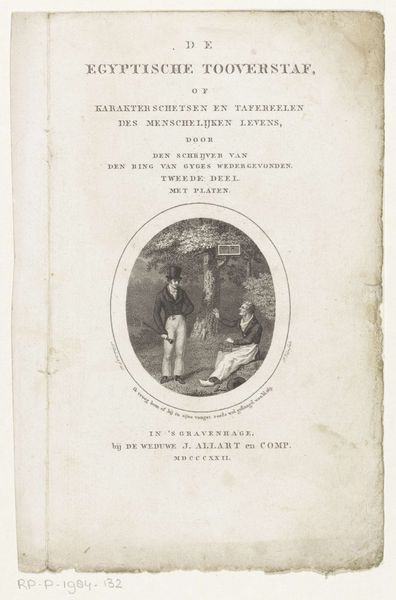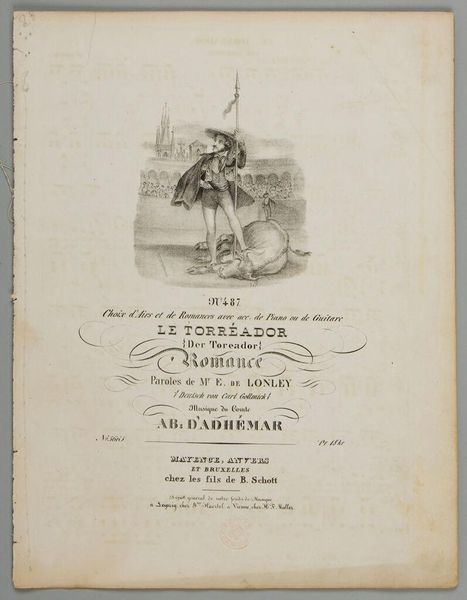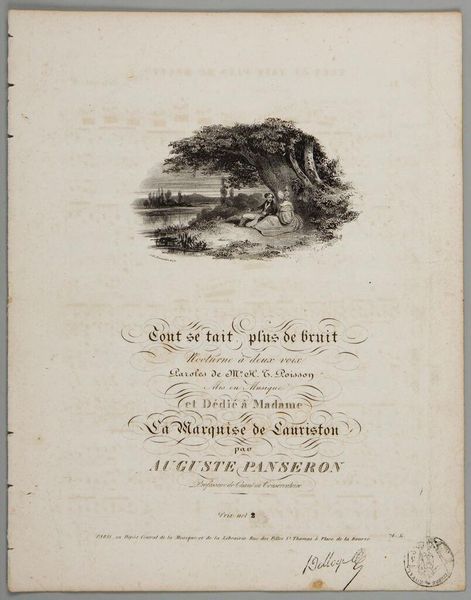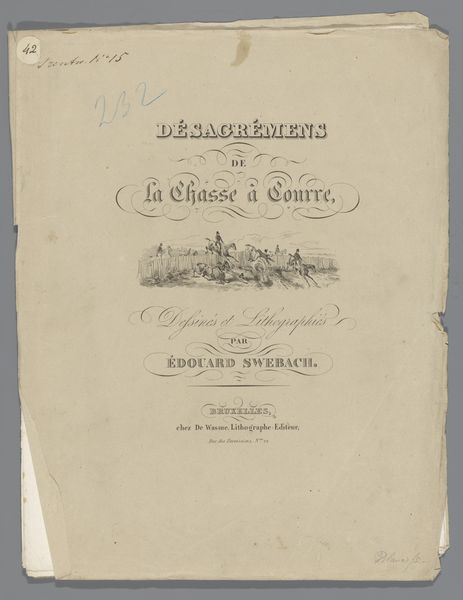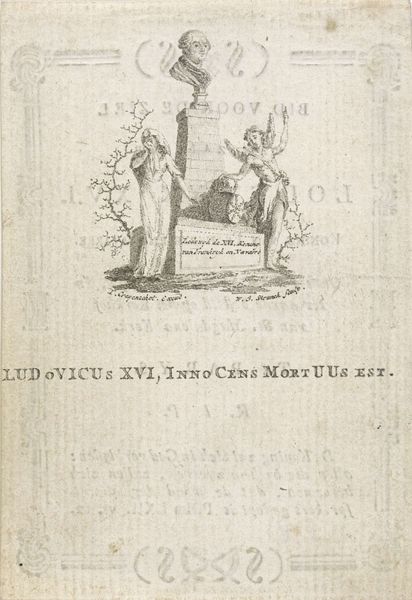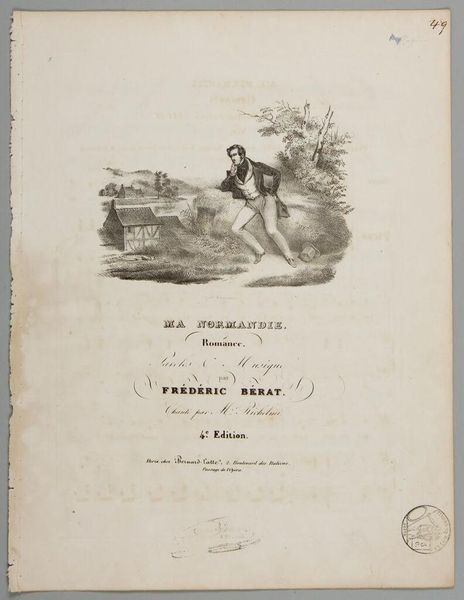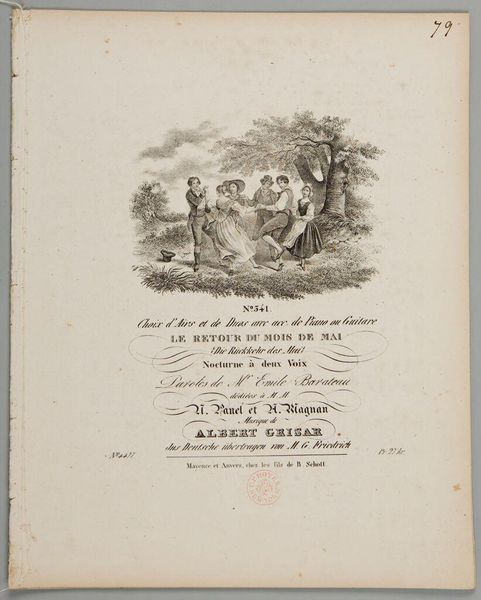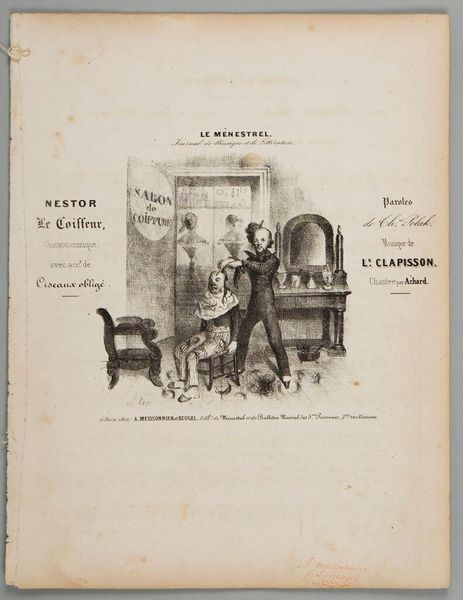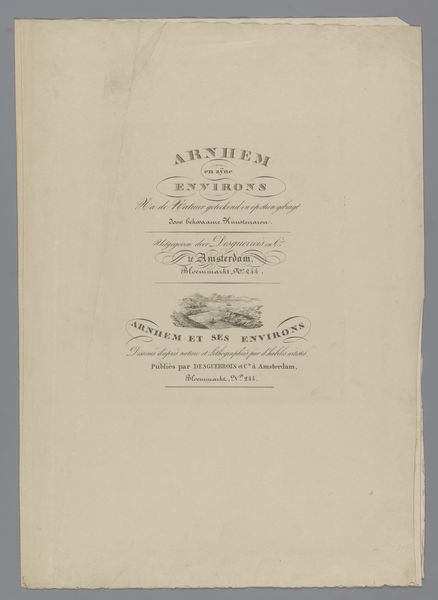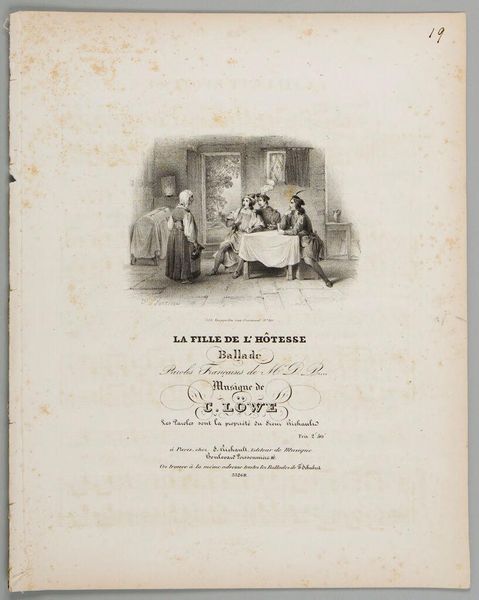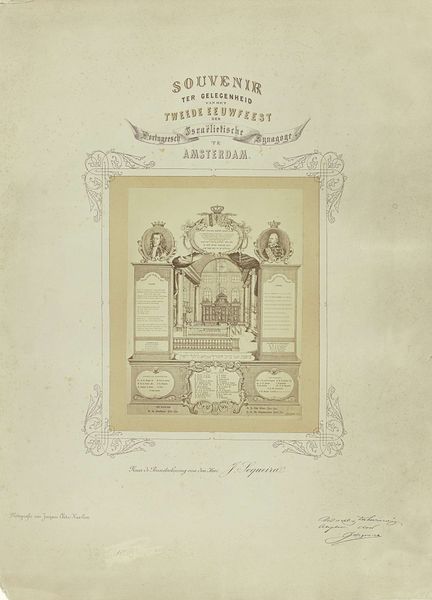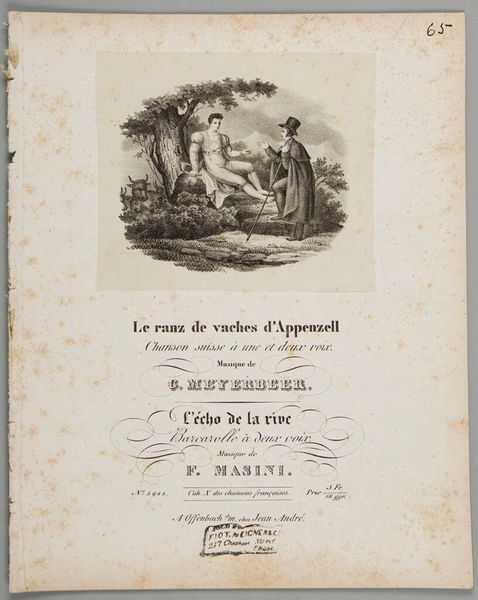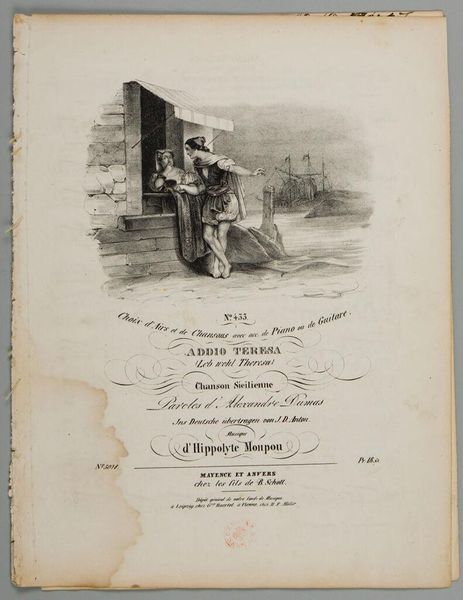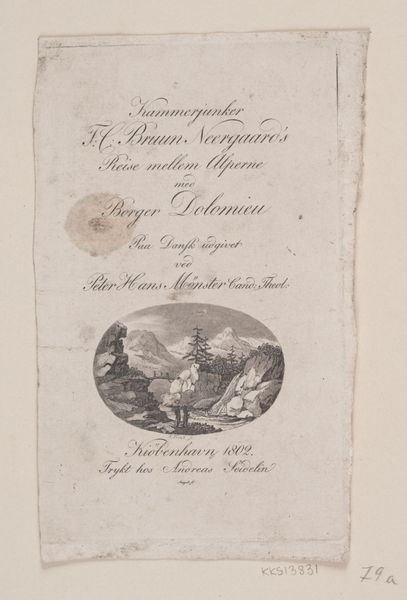
print, textile, engraving
#
portrait
# print
#
textile
#
figuration
#
personal sketchbook
#
romanticism
#
genre-painting
#
golden font
#
decorative-art
#
engraving
#
watercolor
Dimensions: height 293 mm, width 225 mm
Copyright: Rijks Museum: Open Domain
Editor: So, this is "Muziekblad Le Bonheur de se Revoir," a print from around 1800-1900, author unknown, here at the Rijksmuseum. I'm immediately drawn to the sort of melancholy domestic scene at the top. There's a man looking out the window, a woman comforting him, and this shrouded figure. What do you see in this piece? Curator: I see a potent snapshot of 19th-century anxieties, anxieties steeped in patriarchal expectations and gendered roles. The man's melancholic pose suggests a fragility, perhaps an inability to meet societal demands. The woman embodies the era's expectation of feminine support, yet her stance could also hint at her own entrapment within these roles. Editor: The shrouded figure does seem ominous, could it symbolize societal pressure? Curator: Exactly! Or even the looming threat of economic instability or social upheaval which directly contradicts the implied sentiment in "Le Bonheur de se Revoir". Think about it: What is the cost of that 'happiness', who gets to experience it and who remains outside of its circle? Is this an imagined happiness, or one rooted in lived experience? The text and image are at odds. The engraving becomes a poignant commentary on the performative nature of happiness within a restrictive social structure. How does that tension impact your reading of the work? Editor: I see what you mean, it’s less straightforward than I initially thought. Considering that, the shrouded figure becomes a symbol of inequality. Curator: Precisely. Art of this era often served as both a reflection and a subtle critique of the times. These weren't simple depictions, but nuanced conversations about power, gender, and societal expectations. Editor: This makes me think about how consumerism sells us idealized and unattainable representations of the nuclear family and coupledom, then as now. I hadn't considered this could also reflect something quite critical. Thank you!
Comments
No comments
Be the first to comment and join the conversation on the ultimate creative platform.
